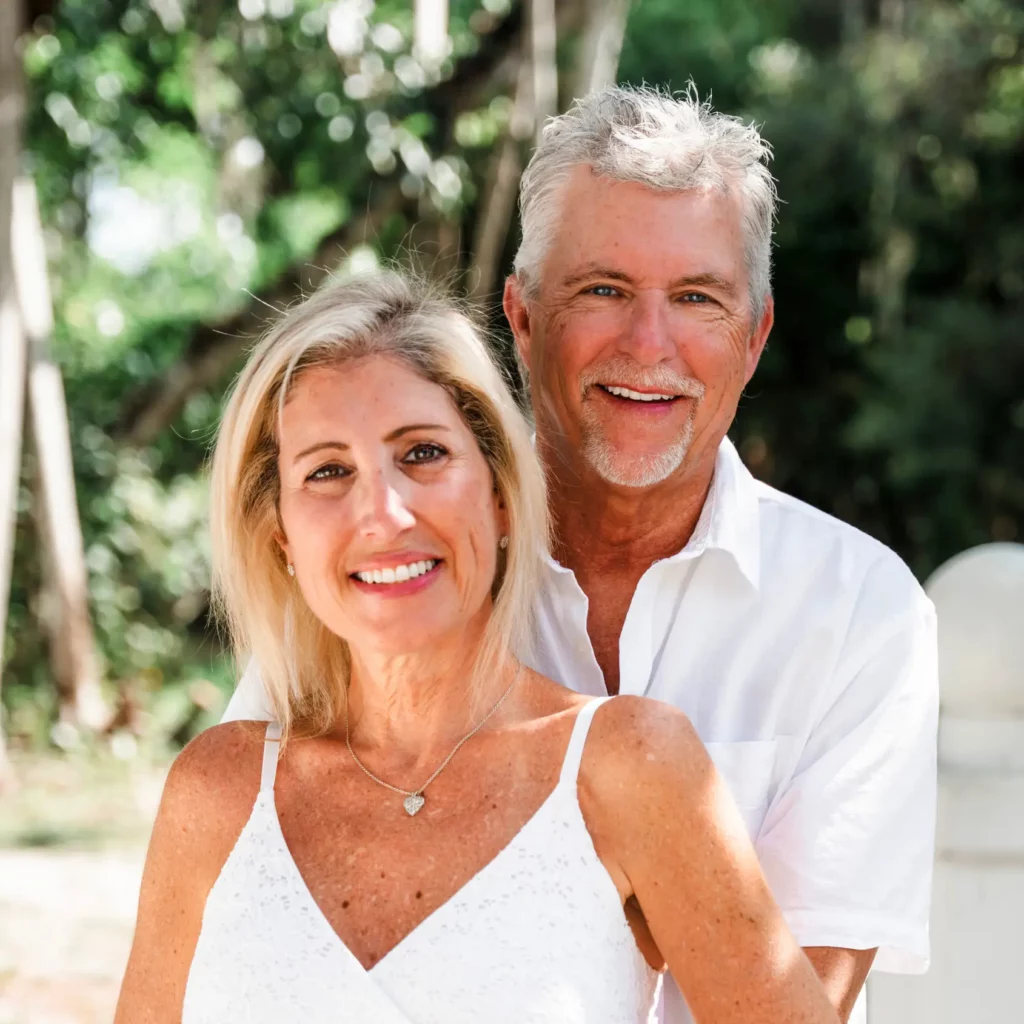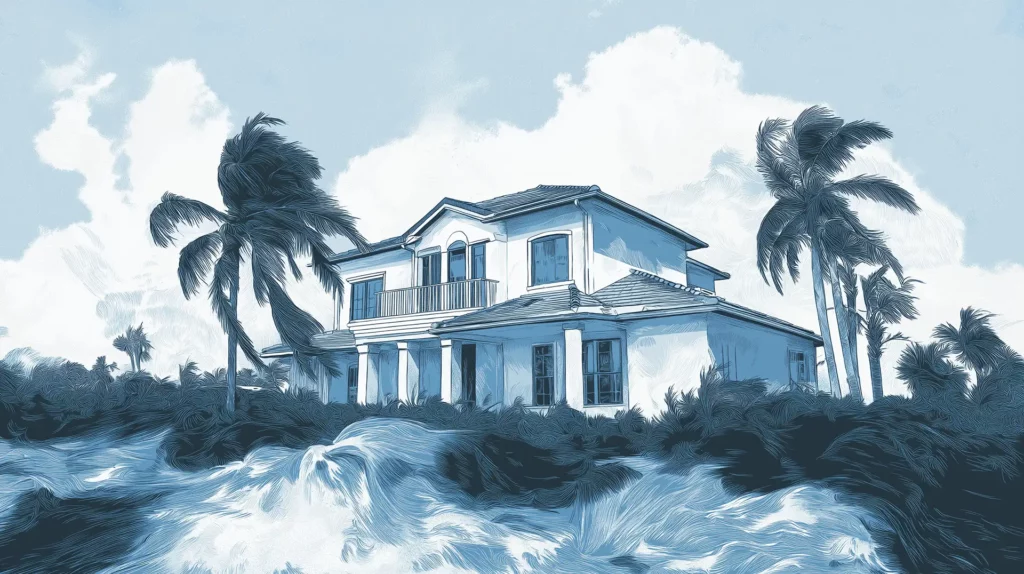Florida winters are perfect for snowbirds escaping the chill of northern states. But before you hit the road, it’s crucial to have the right auto insurance. From understanding state requirements to saving money with smart coverage choices, this guide has the Snowbird Insurance Tips you need. Ensure your time in Florida is hassle-free and safe.
Introduction
Every year, thousands of retirees, often called “snowbirds,” migrate south to escape harsh winters. Florida alone sees over 900,000 part-time residents flock to the Sunshine State annually. Fort Myers is a top destination with its sunny weather, beaches, and welcoming communities.
If you’re a snowbird planning your winter retreat, making sure your auto insurance is in order is vital. It’s about more than avoiding legal trouble—proper coverage can save you stress and money. That’s where Snowbird Insurance Tips come in handy. From managing policies across states to understanding local requirements, small adjustments can make a big difference.
Having the right insurance also means more freedom to enjoy your time in Florida without worrying about life’s curveballs on the road. Whether you’ve done this for years or you’re embarking on your first snowbird adventure, there’s always something new to learn.
Understanding Seasonal Auto Insurance Needs
What Is Seasonal Auto Insurance?
Seasonal auto insurance is designed for people, like snowbirds, who don’t use their vehicles year-round. It allows you to adjust your coverage during the months your car is in storage or isn’t being driven. For example, if you’re leaving your car at your northern home while vacationing in Florida, this type of insurance can offer protection while keeping costs down.
A typical policy might include comprehensive coverage but remove liability, which you don’t need when the vehicle isn’t on the road. This can result in significant savings. According to industry reports, policyholders using storage or seasonal coverage save up to 15%-20% on premiums annually.
Common Insurance Challenges for Snowbirds
Snowbirds face unique insurance challenges, especially when juggling policies across multiple states. Here are some of the most common issues—and how to solve them:
- Managing Coverage in Two Places
- It can be tricky to know which state’s regulations take precedence. Florida, for instance, has specific requirements for long-term visitors.
- Snowbird Insurance Tips? Check if your home-state policy extends coverage to Florida and ensures compliance with both states’ laws.
- Periods of Vehicle Inactivity
- Cars sitting idle for months are vulnerable to theft, vandalism, and weather damage.
- Comprehensive coverage on a seasonal insurance policy protects your vehicle during these inactive periods.
- Switching Residences
- Moving back and forth between climates means keeping track of different policy terms, renewal dates, and state rules. A nationwide provider or consultation with a Florida insurance agent can make this easier.
Do Snowbirds Need Dual Coverage?
The good news is you may not need two separate policies, but it depends on your situation. If you spend more than six months in Florida, the state might require you to register your vehicle there and update insurance accordingly. Overlapping coverage can lead to wasted money, but skipping legal requirements risks fines—or a denied claim in case of an accident.
If you use your car in both states, consult your insurance provider to adjust your policy for this flexibility. Snowbird Insurance Tips often emphasize avoiding coverage gaps, which can lead to higher premiums the next time you renew. Balancing comprehensive and state-compliant coverage requires careful planning—working with a knowledgeable agent can take the guesswork out of it.
State-Specific Auto Insurance Requirements
Florida’s Auto Insurance Requirements
Florida has specific rules for anyone driving in the state, including snowbirds. Florida is a no-fault insurance state, meaning drivers must carry Personal Injury Protection (PIP). This covers their medical expenses, regardless of who caused the accident.
Here’s what Florida requires as a minimum for all drivers, including snowbirds:
- $10,000 for Personal Injury Protection (PIP)
- $10,000 for Property Damage Liability (PDL)
However, these limits may not fully cover you in a serious accident. Many snowbirds opt for higher coverage to stay protected. Following Snowbird Insurance Tips often leads to reviewing if your current policy matches Florida’s no-fault system, which can be very different from your home state.
Out-of-State Vehicles in Florida
Bringing your car from another state? If you’re staying in Florida for over 90 consecutive days (not necessarily all at once), you’re legally required to register your vehicle in Florida. This rule includes snowbirds.
Failing to register or update your insurance to a Florida-compliant policy can result in fines, penalties, or even license suspensions. Keep in mind, law enforcement has access to up-to-date databases to check whether vehicles are properly insured.
Snowbird Insurance Tips for compliance:
- Ask your insurance provider if your current policy meets Florida laws or if it needs adjustment.
- Consider a Florida registration if you stay over three months to avoid unnecessary risks.
Coordinating Insurance Between Florida and Your Home State
Balancing insurance in two states can get complicated, but it’s manageable with the right plan. Start with this checklist:
- Review Your Coverage
- Check if your home policy needs modifications for Florida laws.
- Avoid Gaps
- Gaps in coverage can lead to higher premiums later. Plan ahead by syncing policy updates with your seasonal transitions.
- Work with Multi-State Providers
- Many large insurance providers offer seamless coverage adjustments between states, making them ideal for snowbirds.
By following these Snowbird Insurance Tips, you can transition smoothly between your home state and Florida without feeling bogged down by paperwork. It also ensures you stay compliant, covered, and stress-free while enjoying the Florida sunshine.
Coverage Options for Snowbirds
Comprehensive vs. Liability Insurance
If you’re a snowbird driving in multiple states or parking your car for months, selecting the right coverage matters. Comprehensive coverage provides protection for damages beyond accidents, like theft or natural disasters. Liability insurance, on the other hand, covers costs if you cause an accident but won’t cover damage to your car.
Here’s why many snowbirds prefer comprehensive plans:
- Florida’s weather includes hurricanes and flooding, which can damage vehicles.
- Parked cars face risks like vandalism or falling debris.
According to the Insurance Information Institute, comprehensive coverage adds about $134 per year on average, but it could save you thousands in repair costs after an unforeseen incident.
Liability-only policies are cheaper, but they might leave you with big expenses if a tree falls on your car in Florida or a storm floods the area. Snowbird Insurance Tips? Assess how much time your car will be parked or used each season to decide which option fits.
Storage or “Parked” Insurance
Parked insurance, also called storage insurance, is perfect if your car won’t leave the driveway for several months. It’s designed to protect against non-driving risks like fire, theft, or weather-related damage—without paying for on-road coverage.
Some key points to know about parking insurance:
- You can save up to 30% on premiums by pausing collision and liability coverage.
- It only applies if the vehicle isn’t driven during the covered period.
Snowbird Insurance Tips when storing your vehicle:
- Keep registration and tags updated to avoid penalties.
- Ensure storage insurance includes comprehensive coverage for full protection.
- Check if your garage or storage space qualifies you for additional discounts.
Temporary or Short-Term Coverage
Short-term auto policies can be a game-changer for snowbirds who only need coverage for a few months. These policies provide flexibility for those who travel to Florida seasonally or only use an additional car part-time.
Why consider short-term coverage?
- You won’t pay for a full year of insurance if you’re in Florida for just a few months.
- Plans range from monthly to six-month terms, offering cost-effective solutions for part-time needs.
Snowbird Insurance Tips for temporary coverage:
- Discuss short-term options with your current provider first—they may offer discounts for bundling seasonal policies.
- If renting a car for your Florida stay, verify if short-term plans work with rental agencies.
Having tailored coverage saves money and ensures better protection during your migration. Whether you’re parking your car back home or driving in Florida, understanding these options helps make smarter insurance choices.
Tips for Saving Money on Auto Insurance
Bundling Policies
Bundling your auto insurance with home, condo, or RV insurance is one of the simplest ways to save. Many insurance providers offer discounts of up to 25% when you combine multiple policies under one plan. If you own a second home or a winter condo in Florida, this is especially worth exploring.
Why does bundling work? It’s cost-effective for the insurer, and they pass those savings to you. Snowbird Insurance Tips? Ask your agent about adding roadside assistance or umbrella coverage to your bundle for added protection at a reduced rate.
Usage-Based Insurance Plans
If you aren’t driving much, a usage-based insurance (UBI) plan could be perfect for you. These plans use a tracking device to monitor how far you drive and adjust your premium based on that data.
Why UBI plans make sense for snowbirds:
- Some providers offer discounts of 10% to 20% for low-mileage drivers.
- You only pay for what you use, which is ideal if you have a parked car half the year.
Snowbird Insurance Tips for UBI plans:
- Make sure you’re comfortable with tracking devices or apps.
- Confirm your provider offers these plans in both your home state and Florida.
Discount Opportunities
There are plenty of discounts available for snowbirds—you just need to ask. Here are a few common discounts to explore:
- Safe Driver Discounts: Many insurers reward you for accident-free driving records.
- Loyalty Discounts: Staying with one provider for several years often leads to premium reductions.
- Senior or Retiree Discounts: Many snowbirds are eligible for these savings since they are retired and drive less.
Snowbird Insurance Tips? Always ask about new promotions or discounts when updating your policy—some might only apply for seasonal residents.
Avoiding Overinsurance
Overinsurance happens when you’re paying for coverage you don’t really need. For instance, if your car is only driven part-time, you might not need full annual coverage.
How to avoid overinsurance as a snowbird:
- Review your policies every year before heading to Florida.
- Cut coverage for cars that stay parked for months.
- Balance liability, comprehensive, and collision coverage based on how (and where) you’re using your cars.
Following these Snowbird Insurance Tips ensures you’re not wasting money while staying safe on the road. Focusing on what you need—and cutting what you don’t—can lower your premiums without sacrificing peace of mind.
Preparing for the Snowbird Transition
Communicating with Your Insurance Agent
Before making the move, it’s important to sit down with your insurance agent. Open communication ensures you’re not caught off guard by any coverage gaps or legal requirements.
Key questions to ask your agent:
- Does my current policy meet Florida’s minimum insurance requirements?
- Do I need additional coverage, such as comprehensive or roadside assistance?
- Can my premium be adjusted if my car won’t be in use for part of the year?
Snowbird Insurance Tips? Schedule this discussion a few weeks before heading south. This will give your agent time to make updates and provide you with necessary documents.
Updating Personal Documents
Spending several months in Florida may require some administrative updates. Here’s what you should focus on:
- Driver’s License: If you’re in Florida for an extended period, you might need to update your license to meet residency requirements.
- Vehicle Registration: Florida law requires car registration for those staying over 90 consecutive days.
- Insurance Address Changes: Temporary or secondary addresses should be clearly noted in your policy to avoid coverage disputes.
Snowbird Insurance Tips? Double-check deadlines and ensure you have all the required paperwork. Getting this sorted early will eliminate stress later.
Emergency Roadside Assistance
Unexpected car trouble on long road trips can ruin a good start to your snowbird season. Adding roadside assistance to your policy is an affordable way to protect against breakdowns.
Why this is a must for snowbirds:
- AAA reports that flat tires, dead batteries, and lockouts are the most common roadside incidents, especially during long-distance winter travel.
- Some insurers offer it as an add-on for as little as $10-$20 annually.
Snowbird Insurance Tips for peace of mind:
- Confirm coverage extends across states, including highways en route to Florida.
- Consider plans that include towing, fuel delivery, and lockout services.
By preparing ahead of time, you can ensure a smooth, stress-free transition to your winter retreat. Addressing these simple yet crucial details upfront will help you focus on enjoying your time in Florida.
Taking care of your auto insurance is essential for a safe and worry-free snowbird season. From understanding seasonal needs to balancing state laws and finding the right coverage, these steps can save you time, money, and stress. Tailoring your policy with options like storage insurance or usage-based plans ensures you only pay for what you need. Don’t forget to update your documents, talk to your agent, and prepare for emergencies before heading south.
If you have questions or want personalized Snowbird Insurance Tips, contact our Fort Myers insurance agency today. We’re here to help you stay protected and transition smoothly into your winter getaway.







